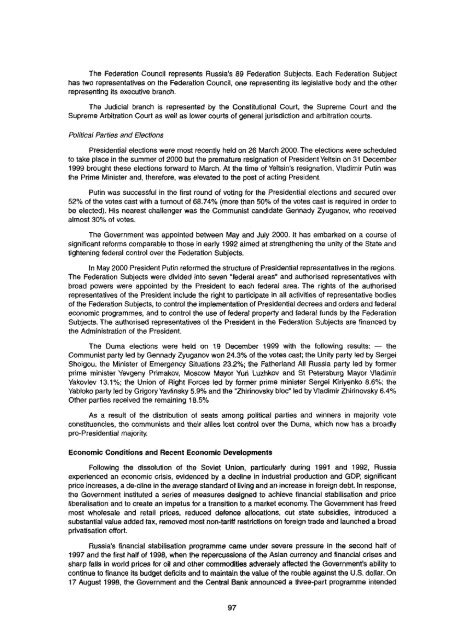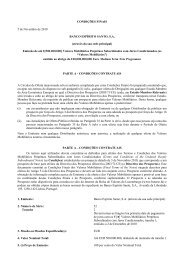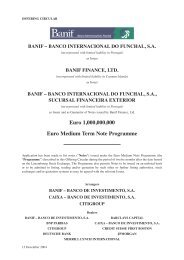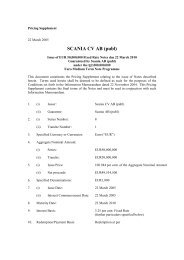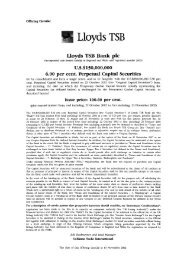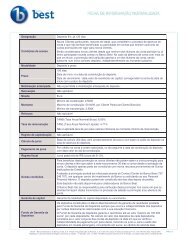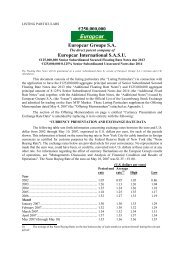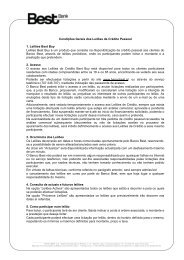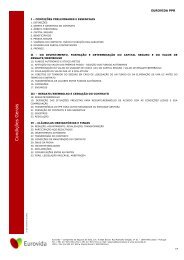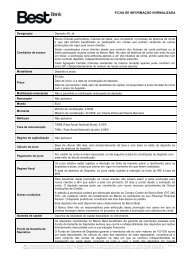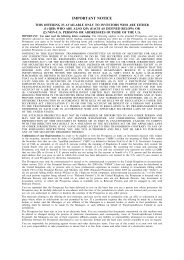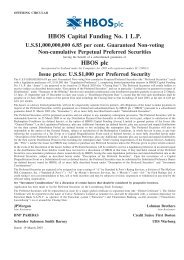force is being formed to gradually take over the maintenance of order from the Russian military, andsubstantial amounts have been promised in aid for reconstruction of Chechnya. However, the situationis not stable and there have been no official talks between the federal authorities and rebel leaders. Itis expected that the future of the Chechen Republic will only be decided after the completion ofoperations by the Russian interior and military troops.ConstitutionThe Constitution provides for a tripartite governmental structure in which the power of the Stateis divided between the executive, legislative and judicial branches, each independent of the others. TheConstitution also establishes a federal system, allocating responsibilities between federal andsubfederal authorities and setting out the principles of local government.Executive, Legislative and Judicial BranchesThe Executive branch consists of the President and the Government of Russia.The President of Russia has broad powers. The President is Head of State and SupremeCommander of the Armed Forces, with authority to declare states of military emergency and otherstates of emergency, subject to approval by the Federation Council and has responsibility for foreignpolicy and national defence. The President has the power to issue decrees and orders having the forceof law (although these may not contradict the Constitution or federal legislation), to suspend acts ofsubfederal executive authorities and to call a national referendum on matters of special importance. ThePresident also has the power to veto bills passed by the Federal Assembly and, under certaincircumstances, to dissolve the State Duma. The President also enjoys significant powers ofappointment, including the power to appoint the Prime Minister (with the consent of the Duma) andother members of the Government (who are nominated by the Prime Minister). The President may alsodismiss deputy prime ministers and federal ministers at any time. In addition, the President nominatescandidates for Governor of the Central Bank (for appointment by the Duma) and the Prosecutor General(for appointment by the Federation Council) and also nominates judges for the Constitutional Court, theSupreme Court and the Supreme Arbitration Court (for appointment by the Federation Council).The President is elected in a national election for a term of four years. The Constitution providesfor the early termination of the President's term of office in the event of his death, resignation orimpeachment, or if he is persistently unable to exercise his powers for reasons of health, in which casethe Prime Minister fulfils the responsibilities of the President until a new President is elected. Newpresidential elections must be held within three months of any such early termination.The Government of Russia comprises the Prime Minister, deputy prime ministers and federalministers, all of whom are appointed by the President as described above. The Government isautomatically dis-solved after each presidential election, in order to permit the President to form a newGovernment. The Government is responsible for implementing federal laws, presidential decrees andinternational agreements. In particular, the Government is responsible for preparing and implementingthe federal budget, establishing a unified financial, credit and monetary policy, carrying out social policy,preserving public order and defending the rights and freedoms of citizens.The Legislative branch is the Federal Assembly, which consists of a lower chamber, the StateDuma, and an upper chamber, the Federation Council.The State Duma consists of 450 deputies, elected by a mixed system of majority vote andproportional representation. Half of the deputies are elected by majority vote in individual electoraldistricts. The other half are chosen from "party lists" on the basis of a nationwide election, with seatsbeing allocated in proportion to the number of votes received by the party. Generally, only partiesreceiving more than 5% of the votes qualify for these "party list" seats. "Party list" deputies are free tochange their party affiliations during their terms in office without the need for a new election. The StateDuma sits for four years and no person may simultaneously serve as a State Duma deputy and hold aposition in the Government.96
The Federation Council represents Russia's 89 Federation Subjects. Each Federation Subjecthas two representatives on the Federation Council, one representing its legislative body and the otherrepresenting its executive branch.The Judicial branch is represented by the Constitutional Court, the Supreme Court and theSupreme Arbitration Court as well as lower courts of general jurisdiction and arbitration courts.Political Parties and ElectionsPresidential elections were most recently held on 26 March 2000. The elections were scheduledto take place in the summer of 2000 but the premature resignation of President Yeltsin on 31 December1999 brought these elections forward to March. At the time of Yeltsin's resignation, Vladimir Putin wasthe Prime Minister and, therefore, was elevated to the post of acting President.Putin was successful in the first round of voting for the Presidential elections and secured over52% of the votes cast with a turnout of 68.74% (more than 50% of the votes cast is required in order tobe elected). His nearest challenger was the Communist candidate Gennady Zyuganov, who receivedalmost 30% of votes.The Government was appointed between May and July 2000. It has embarked on a course ofsignificant reforms comparable to those in early 1992 aimed at strengthening the unity of the State andtightening federal control over the Federation Subjects.In May 2000 President Putin reformed the structure of Presidential representatives in the regions.The Federation Subjects were divided into seven "federal areas" and authorised representatives withbroad powers were appointed by the President to each federal area. The rights of the authorisedrepresentatives of the President include the right to participate in all activities of representative bodiesof the Federation Subjects, to control the implementation of Presidential decrees and orders and federaleconomic programmes, and to control the use of federal property and federal funds by the FederationSubjects. The authorised representatives of the President in the Federation Subjects are financed bythe Administration of the President.The Duma elections were held on 19 December 1999 with the following results: — theCommunist party led by Gennady Zyuganov won 24.3% of the votes cast; the Unity party led by SergeiShoigou, the Minister of Emergency Situations 23.2%; the Fatherland All Russia party led by formerprime minister Yevgeny Primakov, Moscow Mayor Yuri Luzhkov and St Petersburg Mayor VladimirYakovlev 13.1%; the Union of Right Forces led by former prime minister Sergei Kiriyenko 8.6%; theYabloko party led by Grigory Yavlinsky 5.9% and the "Zhirinovsky bloc" led by Vladimir Zhirinovsky 6.4%Other parties received the remaining 18.5%As a result of the distribution of seats among political parties and winners in majority voteconstituencies, the communists and their allies lost control over the Duma, which now has a broadlypro-Presidential majority.Economic Conditions and Recent Economic DevelopmentsFollowing the dissolution of the Soviet Union, particularly during 1991 and 1992, Russiaexperienced an economic crisis, evidenced by a decline in industrial production and GDP, significantprice increases, a de-cline in the average standard of living and an increase in foreign debt. In response,the Government instituted a series of measures designed to achieve financial stabilisation and priceliberalisation and to create an impetus for a transition to a market economy. The Government has freedmost wholesale and retail prices, reduced defence allocations, cut state subsidies, introduced asubstantial value added tax, removed most non-tariff restrictions on foreign trade and launched a broadprivatisation effort.Russia's financial stabilisation programme came under severe pressure in the second half of1997 and the first half of 1998, when the repercussions of the Asian currency and financial crises andsharp falls in world prices for oil and other commodities adversely affected the Government's ability tocontinue to finance its budget deficits and to maintain the value of the rouble against the U.S. dollar. On17 August 1998, the Government and the Central Bank announced a three-part programme intended97
- Page 1:
OFFERING CIRCULARJOINT-STOCKCOMPANY
- Page 4 and 5:
classifications and methodologies,
- Page 6 and 7:
INVESTMENT CONSIDERATIONSAn investm
- Page 8 and 9:
Relationship with the GovernmentThe
- Page 10 and 11:
elation to its assets and operation
- Page 12 and 13:
Ethnic and religious differences in
- Page 14 and 15:
TRANSACTION SUMMARYThe transaction
- Page 16 and 17:
SELECTED FINANCIAL INFORMATIONThe s
- Page 18 and 19:
CAPITALISATIONThe following table s
- Page 20 and 21:
OAO GAZPROMPrivatisation and Format
- Page 22 and 23:
Gazprom Shares. The Presidential De
- Page 24 and 25:
Gazprom's main subsidiaries were, a
- Page 26 and 27:
Management StructureIn accordance w
- Page 28 and 29:
The current membership of Gazprom's
- Page 30 and 31:
1999 2000 2001(mtoe, except for per
- Page 32 and 33:
Central and Eastern EuropeGazprom e
- Page 34 and 35:
U.S.$43 million and from those cust
- Page 36 and 37:
Country% OFEUROPEANNATURALGAS SUPPL
- Page 38 and 39:
As at 31 December 2000, proved and
- Page 40 and 41:
The following table sets out, as at
- Page 42 and 43:
een put on stream at the Astrakhans
- Page 44 and 45:
Orenburg Helium Plant. This is Russ
- Page 46 and 47: The following table sets forth some
- Page 48 and 49: Gazprom provides the independent su
- Page 50 and 51: INTERNATIONAL PROJECTS AND ALLIANCE
- Page 52 and 53: major natural gas distributor in ea
- Page 54 and 55: Other foreign associate undertaking
- Page 56 and 57: Gazprom has developed and continues
- Page 58 and 59: LOAN AGREEMENTThe following is the
- Page 60 and 61: "Notes" means the U.S.$500,000,000
- Page 62 and 63: "Subsidiary" means, with respect to
- Page 64 and 65: 5 Repayment and Prepayment5.1 Repay
- Page 66 and 67: the amount of any such payment and
- Page 68 and 69: necessary to compensate the Bank fo
- Page 70 and 71: 9.1.15 In any proceedings taken in
- Page 72 and 73: 10.6 Payment of Taxes and Other Cla
- Page 74 and 75: ankruptcy law, or (iii) a bankruptc
- Page 76 and 77: execution of this Agreement and all
- Page 78 and 79: 14.8 Contracts (Rights of Third Par
- Page 80 and 81: TERMS AND CONDITIONS OF THE NOTESTh
- Page 82 and 83: Under the Trust Deed, the obligatio
- Page 84 and 85: Payments of interest shall be made
- Page 86 and 87: The Trustee may agree, without the
- Page 88 and 89: SUMMARY OF PROVISIONS RELATING TO T
- Page 90 and 91: circumstances, if the disposal proc
- Page 92 and 93: SALOMON BROTHERS AGThe Bank is lice
- Page 94 and 95: GENERAL INFORMATION1. The Notes rep
- Page 98 and 99: to address these pressures. First,
- Page 100 and 101: Balance of PaymentsThe following ta
- Page 102 and 103: understanding that it would serve a
- Page 104 and 105: GeneralAPPENDIX B - PART 1 - OVERVI
- Page 106 and 107: most important recent piece of legi
- Page 108 and 109: integrated objects managed on a cen
- Page 110 and 111: • price regulation - setting pric
- Page 112 and 113: APPENDIX B — PART II — EXTRACT
- Page 114 and 115: APPENDIX C - GLOSSARY OF TERMS"Acco
- Page 116 and 117: "State Gas Concern Gazprom"the Stat
- Page 118 and 119: OAO GAZPROMIAS CONSOLIDATED FINANCI
- Page 120 and 121: OAO GAZPROMIAS CONSOLIDATED BALANCE
- Page 122 and 123: OAO GAZPROMIAS CONSOLIDATED STATEME
- Page 124 and 125: OAO GAZPROMNOTES TO THE IAS CONSOLI
- Page 126 and 127: OAO GAZPROMNOTES TO THE IAS CONSOLI
- Page 128 and 129: OAO GAZPROMNOTES TO THE IAS CONSOLI
- Page 130 and 131: OAO GAZPROMNOTES TO THE IAS CONSOLI
- Page 132 and 133: OAO GAZPROMNOTES TO THE IAS CONSOLI
- Page 134 and 135: OAO GAZPROMNOTES TO THE IAS CONSOLI
- Page 136 and 137: OAO GAZPROMNOTES TO THE IAS CONSOLI
- Page 138 and 139: OAO GAZPROMNOTES TO THE IAS CONSOLI
- Page 140 and 141: OAO GAZPROMNOTES TO THE IAS CONSOLI
- Page 142 and 143: OAO GAZPROMNOTES TO THE IAS CONSOLI
- Page 144 and 145: OAO GAZPROMNOTES TO THE IAS CONSOLI
- Page 146 and 147:
OAO GAZPROMNOTES TO THE IAS CONSOLI
- Page 148 and 149:
OAO GAZPROMNOTES TO THE IAS CONSOLI
- Page 150 and 151:
OAO GAZPROMNOTES TO THE IAS CONSOLI
- Page 152 and 153:
OAO GAZPROMNOTES TO THE IAS CONSOLI
- Page 154 and 155:
OAO GAZPROMNOTES TO THE IAS CONSOLI
- Page 156 and 157:
OAO GAZPROMNOTES TO THE IAS CONSOLI
- Page 158 and 159:
PRlCEWATERHOUSECOOPERSZAO Pricewate
- Page 160 and 161:
OAO GAZPROMIAS CONSOLIDATED STATEME
- Page 162 and 163:
OAO GAZPROMIAS CONSOLIDATED STATEME
- Page 164 and 165:
OAO GAZPROMNOTES TO THE IAS CONSOLI
- Page 166 and 167:
OAO GAZPROMNOTES TO THE IAS CONSOLI
- Page 168 and 169:
OAO GAZPROMNOTES TO THE IAS CONSOLI
- Page 170 and 171:
OAO GAZPROMNOTES TO THE IAS CONSOLI
- Page 172 and 173:
OAO GAZPROMNOTES TO THE IAS CONSOLI
- Page 174 and 175:
OAO GAZPROMNOTES TO THE IAS CONSOLI
- Page 176 and 177:
OAO GAZPROMNOTES TO THE IAS CONSOLI
- Page 178 and 179:
OAO GAZPROMNOTES TO THE IAS CONSOLI
- Page 180 and 181:
OAO GAZPROMNOTES TO THE IAS CONSOLI
- Page 182 and 183:
OAO GAZPROMNOTES TO THE IAS CONSOLI
- Page 184 and 185:
OAO GAZPROMNOTES TO THE IAS CONSOLI
- Page 186 and 187:
OAO GAZPROMNOTES TO THE IAS CONSOLI
- Page 188 and 189:
OAO GAZPROMNOTES TO THE IAS CONSOLI
- Page 190 and 191:
OAO GAZPROMNOTES TO THE IAS CONSOLI
- Page 192 and 193:
OAO GAZPROMNOTES TO THE IAS CONSOLI
- Page 194 and 195:
OAO GAZPROMNOTES TO THE IAS CONSOLI
- Page 196 and 197:
OAO GAZPROMNOTES TO THE IAS CONSOLI
- Page 198 and 199:
OAO GAZPROMNOTES TO THE IAS CONSOLI
- Page 200 and 201:
OAO GAZPROMNOTES TO THE IAS CONSOLI
- Page 202 and 203:
OAO GAZPROMINVESTOR RELATIONSThe Co
- Page 204 and 205:
LEGAL ADVISERSTo the CompanyAs to R
- Page 206:
printed by eprintfinancial.comtel:


